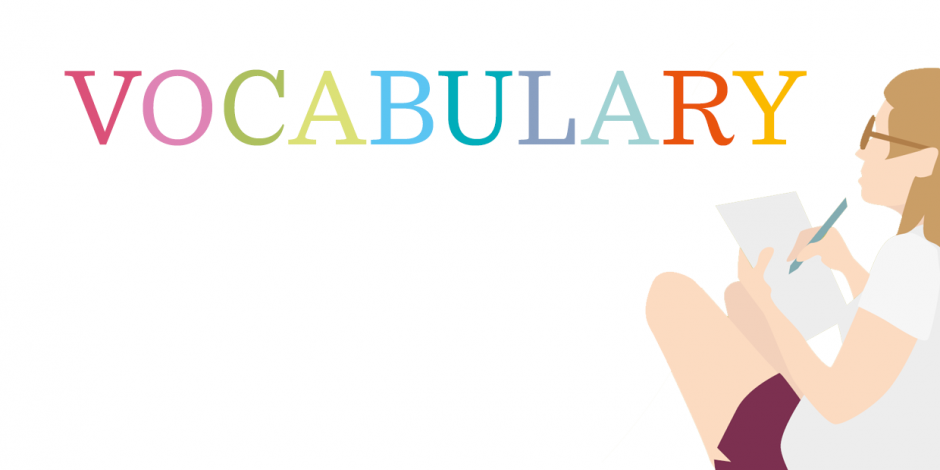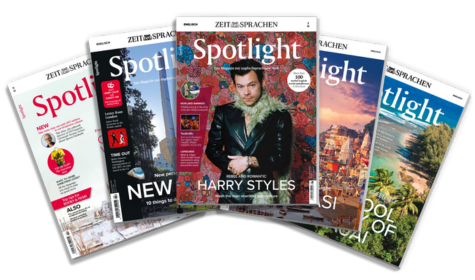V
Video clips on YouTube are a great way to improve your vocabulary. There are lots of videos that present and practise words by topic. You can find out about the different varieties of English, too – American versusgegenüber, im Vergleich zuversus British words and phrases, or Australian slang, for example.
O
Online learning tools and apps provide a wealth of fun ways to to consolidatefestigenconsolidate and extend your vocabulary. The English Club website, for example, deals with lots of topics, giving the words in context and providing practice activities.
C
Choose words to learn that are useful to you in real situations. If you don’t drive a car, you won’t need to know the word “gearboxGetriebegearbox”, and only a to sewnähensewing enthusiast needs the word “thimbleFingerhutthimble”. Which words do you need that other learners don’t? It’s a question worth thinking about.
A
Activate your learning! Set yourself little tasks to do each day. Write your to-do list in English, for example, or count how many things you can name on your way to work every day. Name as many ingredientZutatingredients or kitchen utensils as you can while you’re cooking.
B
Be creative in how you learn words. Sing them, shout them, record them on your phone, draw them or play games with them! Practising vocabulary isn’t just about reading and repeating word lists – there are more exciting ways to learn new words. You’ll find ideas for five easy games on the next page.
U
Under your nose is the best place for words that you want to learn. Write a “word of the day” on a Post-it and stick it on to your bathroom mirror or your coffee machine. By the end of the day, you’ll know the word and you can replace it with a new one the next morning.
L
“Little and often” is the key to learning vocabulary. Our brains can take in only a limited number of words at a time. Try to set a time to do this every day – five minutes when you’re on public transport, during your coffee break or just before you go to sleep at night.
A
Always remember that some words go together more than others. For example, “fast” has a similar meaning to “quick”, but we never say “quick food”, only “fast food”. So, it’s best to learn two- or three-word combinations, so-called collocations, as well as single words.
R
Relax! In your search for new words, start off with something that’s easy and fun, something that interests you personally. Your starting point could be a fan site, a Facebook group for a favourite hobby or sport, an online quiz or the lyricsSongtext(e)lyrics to your favourite song.
Y
You are the most important subject of most conversations, so make sure you collect words that will to enablein die Lage versetzenenable you to talk about yourself – your home, your last holiday, health and hobbies, your job, the members of your family, special interests and personal opinions.
Neugierig auf mehr?
Dann nutzen Sie die Möglichkeit und stellen Sie sich Ihr optimales Abo ganz nach Ihren Wünschen zusammen.



